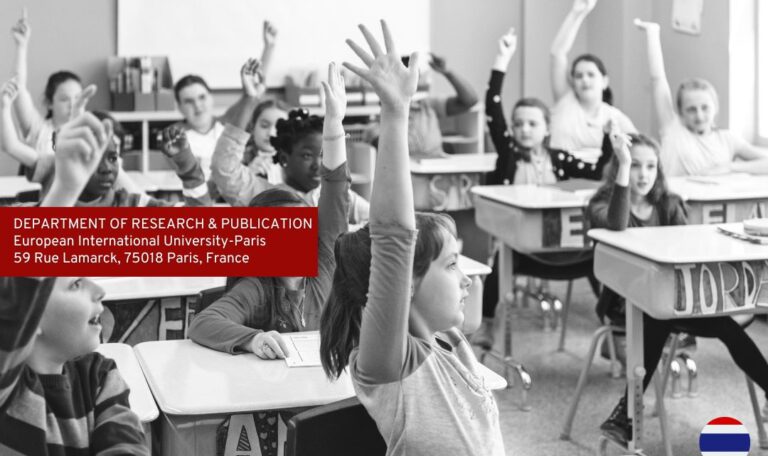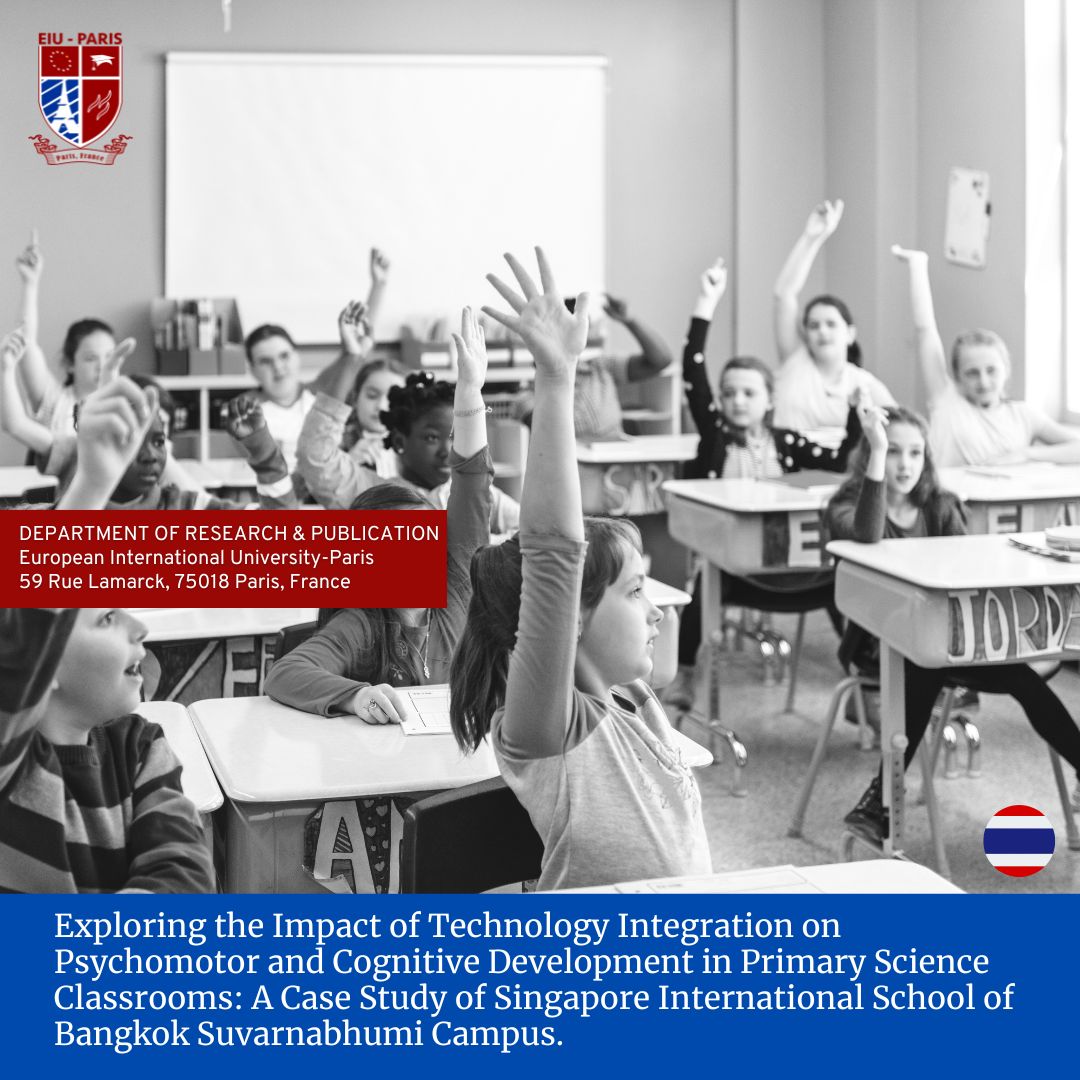- Version
- Download 4
- File Size 1.14 MB
- File Count 1
- Create Date July 24, 2025
- Last Updated July 24, 2025
Exploring the Impact of Technology Integration on Psychomotor and Cognitive Development in Primary Science Classrooms: A Case Study of Singapore International School of Bangkok Suvarnabhumi Campus.
This research explores the impact of technology integration on primary school students' psychomotor and cognitive development in science classrooms, focusing on Grades 4, 5, and 6 at the Singapore International School of Bangkok (SISB) Suvarnabhumi Campus. Using a mixed-method case study approach, the research investigates how interactive digital tools, virtual simulations, and blended learning environments contribute to students’ cognitive and psychomotor development. The study also examines how these tools influence teaching practices and foster skill development in alignment with 21st-century educational demands.
Quantitative data collection involved pre-and post-tests, structured questionnaires, and task performance metrics to evaluate cognitive improvements and psychomotor skills. Qualitative data were gathered through classroom observations, semi-structured interviews with teachers, and focus group discussions with students, enabling a deeper understanding of their experiences and perceptions. A purposive sample of 50–72 students and 4–8 teachers, all actively engaged in technology-enhanced science lessons, was selected to ensure relevance to the research objectives.
The findings reveal that technology integration positively influences cognitive and psychomotor development. Students demonstrated significant improvements in understanding complex scientific concepts, such as the water cycle and force, as reflected in post-test scores. Virtual simulations facilitated visualization and comprehension of abstract topics, enhancing problem-solving and critical-thinking skills. Psychomotor skills, including coordination, precision, and task execution speed, were notably advanced through hands-on activities involving digital tools like interactive models and touchscreens. Teachers reported adopting innovative pedagogical strategies, indicating that technology fosters active classroom engagement, collaboration, and creativity.

Eric Agbor Ashu MSIET EIU-Paris

